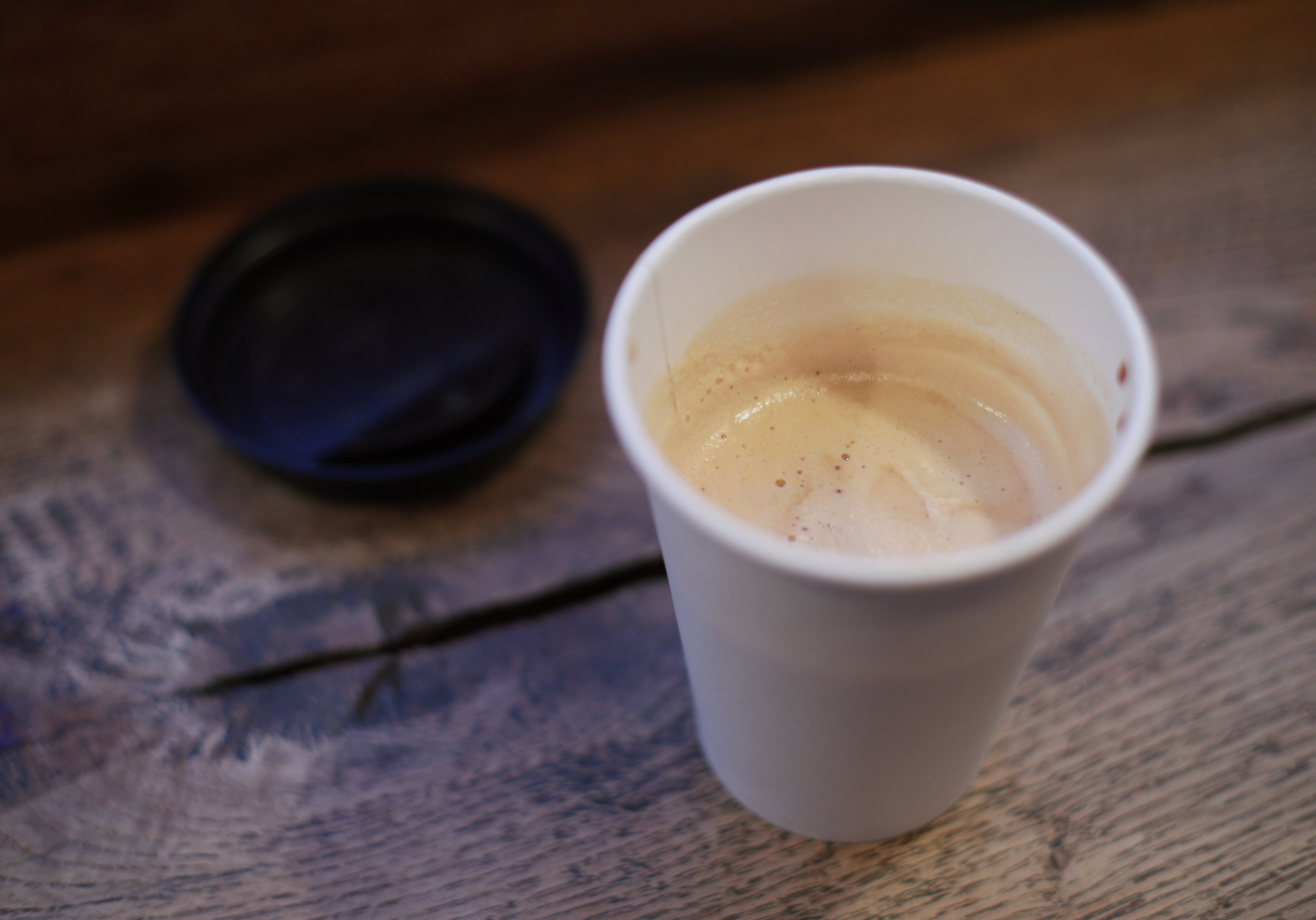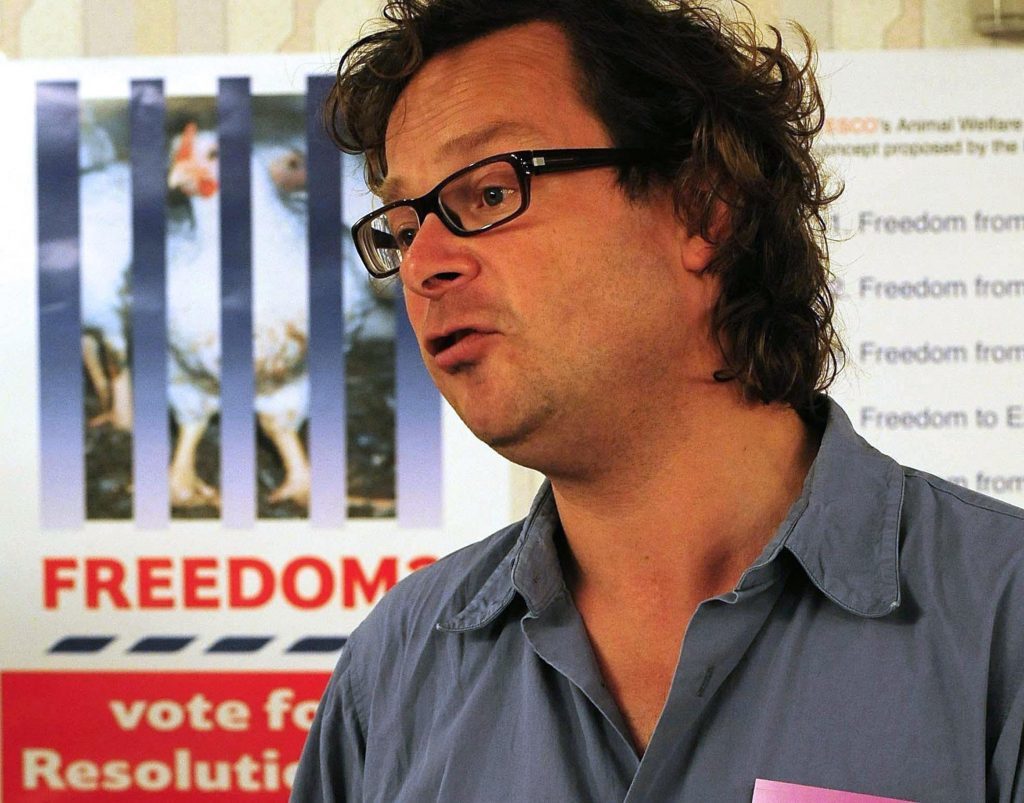
CONSUMERS should be charged a 25p “latte levy” on disposable coffee cups with the revenue used to pay for improved recycling facilities, MPs have urged.
All disposable coffee cups should be recycled by 2023, and they should be banned if the target is not met, the Environmental Audit Committee said.
The committee is calling on the Government to introduce a 25p charge on disposable cups on top of the price of a coffee, with the money raised used to improve the UK’s reprocessing facilities and “binfrastructure” to ensure cups and other food and drink packaging is recycled.
Some shops give money off the price of a hot drink for customers who use reusable cups, such as Pret A Manger, which has just doubled its discount to 50p.
But the committee said uptake of these offers was low at only 1% to 2% of coffee purchases, and consumers were more responsive to a charge than a discount based on the success of the 5p single-use plastic bag levy.
The UK throws away 2.5 billion disposable coffee cups every year.
Almost all of them are incinerated, exported or sent to landfill because their plastic lining makes them costly to recycle.
The committee heard that less than 1% of coffee cups are recycled because there are only three facilities in the UK that can split the paper and plastic components.
But most people dispose of their coffee cups in recycling bins believing they will be recycled.
The committee said cups from cafes that do not have in-store recycling systems should be printed with “not widely recycled” labels to boost consumer awareness, while cafes that do have recycling systems should label their cups as “recyclable in store only”.
It is also calling on the Government to set fees for producers who make packaging that is difficult to recycle.
Committee chairwoman Mary Creagh said: “The UK throws away 2.5 billion disposable coffee cups every year, enough to circle the planet five-and-a-half times.
“Almost none are recycled and half-a-million a day are littered.
“Coffee cup producers and distributors have not taken action to rectify this and government has sat on its hands.
“The UK’s coffee shop market is expanding rapidly, so we need to kick-start a revolution in recycling.
“We’re calling for action to reduce the number of single use cups, promote reusable cups over disposable cups and to recycle all coffee cups by 2023.”
She added: “Coffee shops have been pulling the wool over customers’ eyes, telling us their cups can be recycled when less than 1% are.
“Taxpayers are footing the bill for disposing of the billions of coffee cups thrown away each year, whether or not they are coffee drinkers.
“It is only right that producers should bear more of the financial burden to help recycle their packaging, so my committee is calling for producer responsibility reform that rewards businesses that use sustainable packaging and makes those that don’t face higher charges.”
Laura Foster, head of clean seas at the Marine Conservation Society, said: “Just like the plastic bag charge we are all now familiar with, a charge added to our coffee at the point of purchase will help consumers think about whether to take a refill cup to the cafe.
“We totally agree with the committee that if 100% recycling of coffee cups isn’t reached by 2023, then there should be an outright ban on providing them.
“Only by treating this issue as one that is the responsibility of both industry and consumers will re-use become the norm in place of single-use and throw away.”
Chef and environmental campaigner Hugh Fearnley-Whittingstall said: “The committee has recognised that the huge mountain of disposable coffee cups is effectively unrecyclable, and is overwhelming and disrupting the nation’s waste disposal systems, ultimately polluting our rivers and seas, and needs urgent action.
“But in the end, finding that solution needs to be a matter for law, not just financial incentive. Legislation needs to set a date after which the continued production of unrecyclable coffee cups is banned by law.”
Local Government Association environment spokesman Martin Tett said: “We have long called for industry to step up and show more responsibility in tackling this issue, and councils would be keen to work with producers and discuss how the design and recycling of coffee cups can be improved.
“However we are clear that this is something that must be addressed by industry, and that any associated costs should not be passed onto consumers.”
Environmental charity Hubbub said it was “disappointed” that the industry had not used lessons from two successful cup recycling campaigns – one in London which recycled more than four million cups since its launch in April 2017 and another in Manchester which recycled almost 30,000 cups from one street alone – to achieve wider impact.
A spokeswoman said: “We welcome this report and hope it will stimulate the industry to do more.”

Enjoy the convenience of having The Sunday Post delivered as a digital ePaper straight to your smartphone, tablet or computer.
Subscribe for only £5.49 a month and enjoy all the benefits of the printed paper as a digital replica.
Subscribe